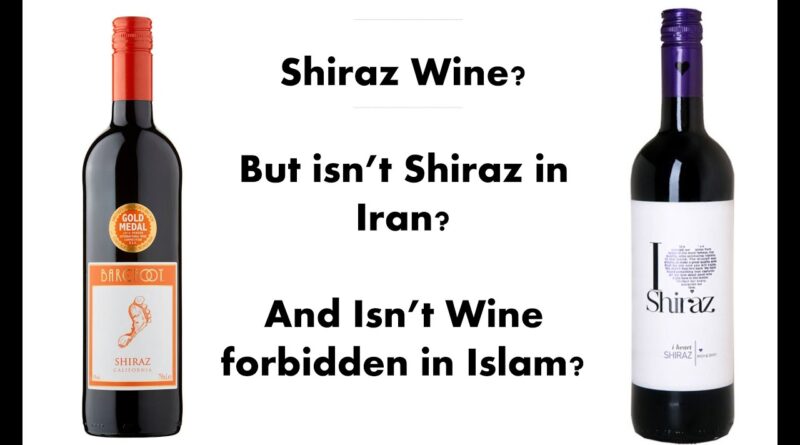Shiraz Wine from Iran suggests that Islamic alcohol is fine!
Alcohol (including wine and beer) is prohibited in Islam, and every Muslim knows it today, because, as they say, it is forbidden by the Qur’an itself.
Take, for instance:
(Quran, Al-Baqarah, 2:219) They ask you ˹O Prophet˺ about intoxicants and gambling. Say, “There is great evil in both, as well as some benefit for people—but the evil outweighs the benefit.” .
(Quran, Al-Maidah, 5:90) O believers! Intoxicants, gambling, idols, and drawing lots for decisions are all evil of Satan’s handiwork. So shun them so you may be successful.
(Quran, 5:91) Satan’s plan is to stir up hostility and hatred between you with intoxicants and gambling and to prevent you from remembering Allah and praying. Will you not then abstain?
Or the Hadith”
(Al-Bukhari, 69:481) Ibn ‘Umar narrated: Allah’s Apostle said, “Whoever drinks alcoholic drinks in the world and does not repent (before dying), will be deprived of it in the Hereafter.”
So, why is Shiraz Wine, which originated in Persia, so popular today, if it originally came from a country which prohibits wine…or was that always the case?
Mel has done some research and has found that historically wine was quite popular in Persia (modern day Iran), and was indeed very popular amongst Muslims for nearly 700 years following the demise of Muhammad.
To be sure, it was the Zoroastrians who introduced wine to Persia way back in 2,500 BC, and they believed that wine, in moderation, was good for you as it gave you wisdom and intellectual ability; so it’s been around and used quite frequently for quite a while.
What about after Islam took over in the 8th or 9th centuries?
716 – 717 AD: The Umayyads liked wine. According to the Chinese diplomat Cefu Yuangui who visited the Umayyad court in 717 AD gave wine cups as a gift to the caliph Suleyman because he loved his wine.
Abbasids (upto the 14th century): the 14th century Persian poet named Khwaje shams-od-Din Mohammad Hafez-e Shirazi referred to the love of wine and women in much of his poetry, even mocking those who were against it. His one caution was that wine should be drunk in moderation, and those who drink to excess were bringing disrepute against those who were able to control their habits.
1680s: During the rule of Shah Abbas there were records of wine usage, and a famous painting from his court shows him and a whole company of dignitaries and guests drinking wine at one of his banquets.
20th century: Prior to the takeover of Iran by the Ayatollah Khomeini in 1979 wine was grown in large vineyards, and drunk by all echelons of society.
Mel showed a famous photograph of the Shah Mohammed Reza Pahlavi providing wine to a large entourage of dignitaries in his palace in 1971.
So, like so much of Islam today, much of what we are told is proper Islam by the Qur’an, and by most modern Muslims is not what was initially practiced by the earliest Muslims, at least not for the first 700 years.
It seems that many of the restrictions and practices we find in Islam today were not the case in the earliest years of its creation, which once again confronts the Standard Islamic Narrative (SIN).
Moving from Iran to another Muslim country Mel will show you in the next episode that this prohibition against Alcohol is also confronted by that countries love for beer; so stay tuned…
© Pfander Centre for Apologetics – US, Jan.20, 2023
(70,030) Music: “Epic Heroic Conquest” by Musiclfiles, from filmmusic-io

